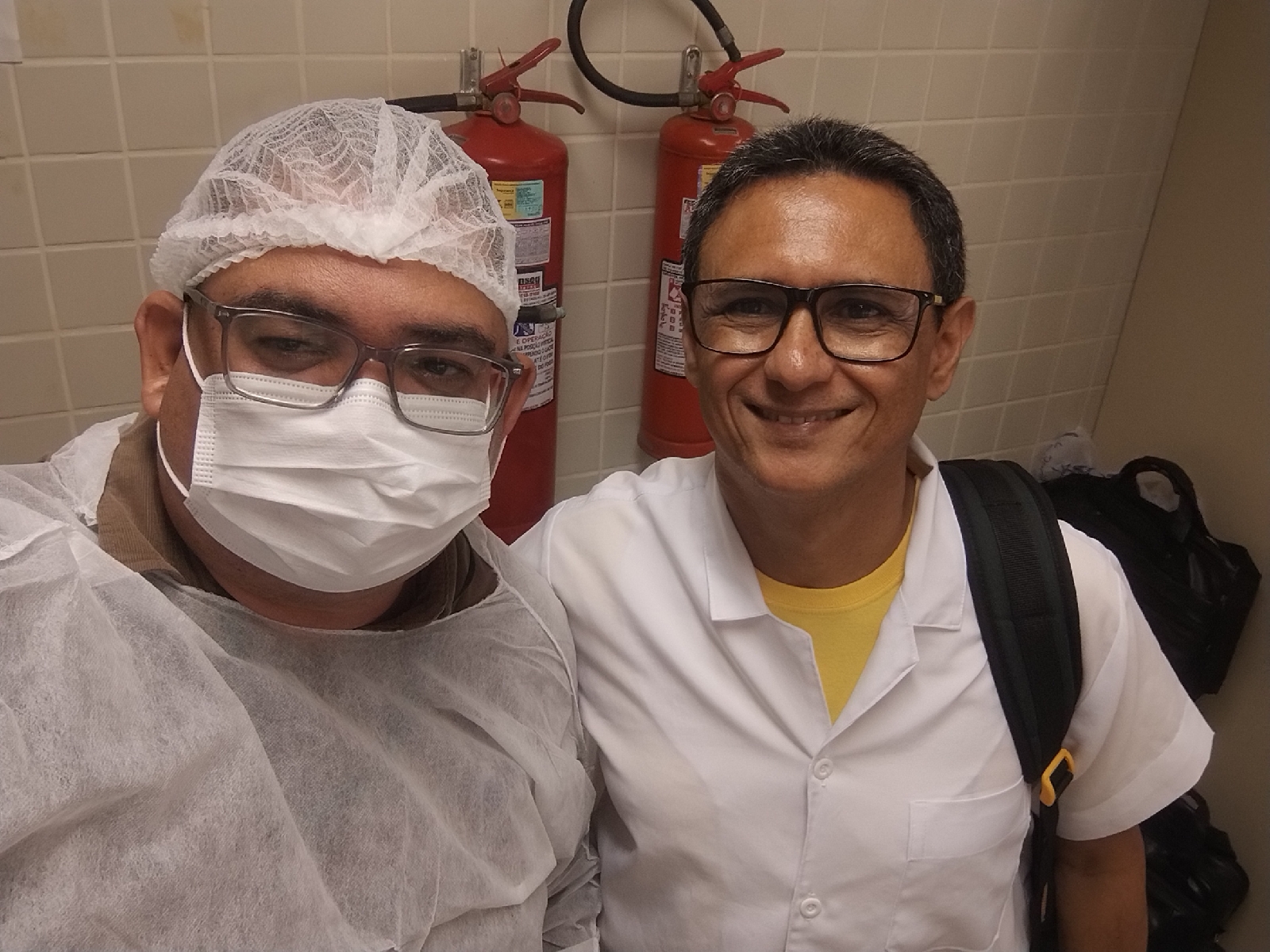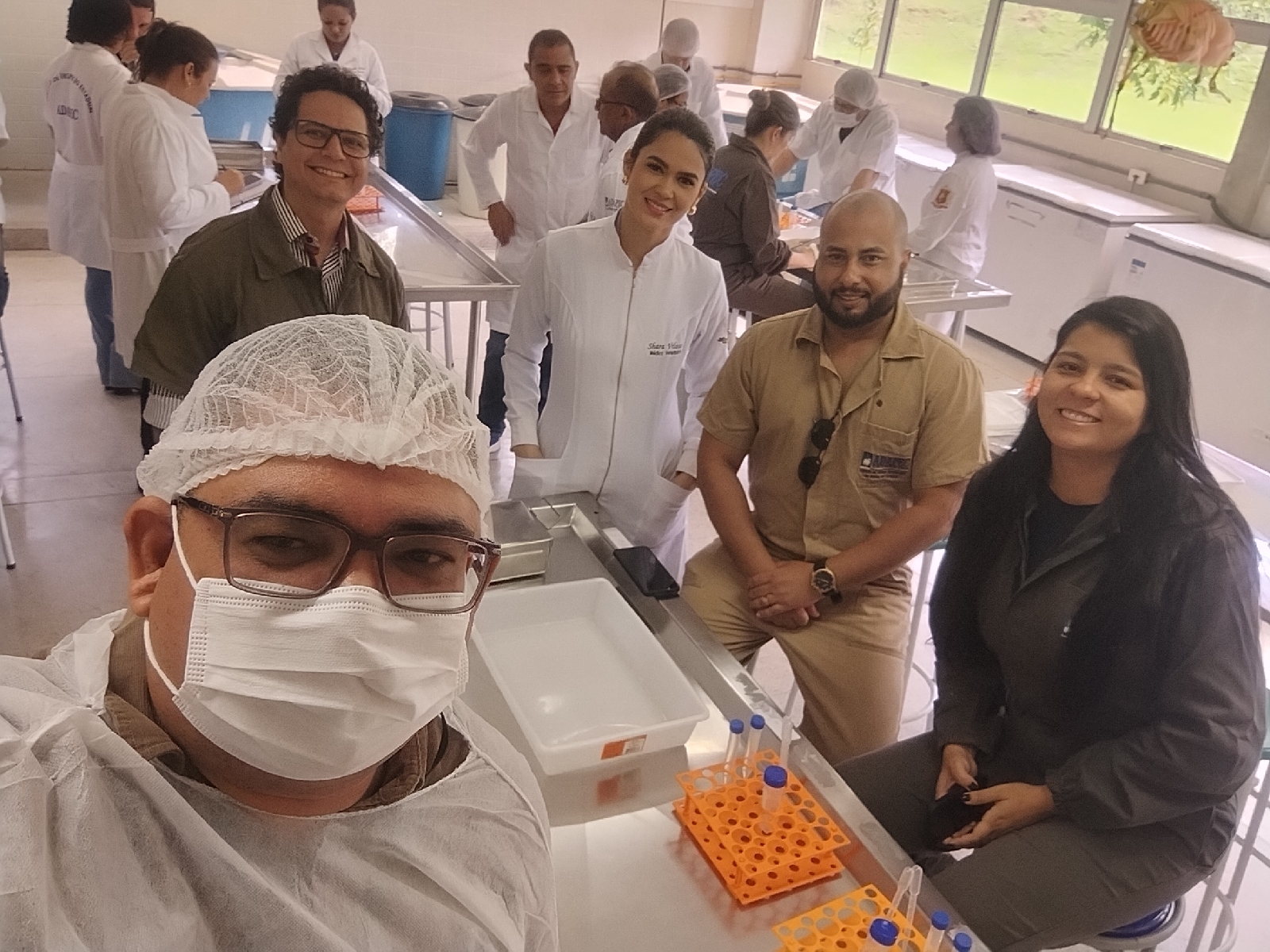INFORVETE AMBIENTAL
Translate
Postagem em destaque
Comitê Pró-Animais e UNITOP promoveram o 2° Workshop sobre Bem-estar Animal
O evento foi promovido pela SEMARH, através da Secretária-Executiva do Comitê Pró-Animais , Dra Meriele Rodrig...

Em Arraias, o presidente do Ruraltins, Osires Damaso, prestigiou a Feira da Colheita que teve uma grande participação dos agricultores familiares e da população
SUSAF-TO: o tema foi abordado no evento
O governador do Tocantins, Wanderlei Barbosa, participou na manhã desta quarta-feira, 9, do Encontro de Secretários Municipais de Agricultura e Médicos-Veterinários dos 139 municípios, promovido pelo Governo do Tocantins, por meio da Secretaria de Estado da Agricultura e Pecuária (Seagro). O evento, realizado no auditório do Serviço Nacional de Aprendizagem Industrial (Senai), em Palmas, reúne no decorrer do dia uma programação diversificada, incluindo palestras sobre adesão aos sistemas sanitários para produtos de origem animal e capacitações sobre os programas estaduais voltados ao fortalecimento do agronegócio.
Durante a abertura do encontro, o governador Wanderlei Barbosa destacou a importância dos gestores se capacitarem para que possam orientar pequenos, médios e grandes produtores em seus municípios. “O principal objetivo é levar informações preciosas para seus municípios e, assim, fomentar a economia. A sanidade dos produtos de origem animal não é apenas uma questão técnica, mas também de dignidade e valorização dos nossos médios e pequenos produtores. Então, a qualificação é muito importante, porque quando os produtores se qualificam, começam a produzir mais, com melhor qualidade, vendem mais e melhoram a vida das suas famílias. Esse é o compromisso do nosso governo, qualificar a mão de obra e ajudar no desenvolvimento de todos. Com o nosso selo Susaf [Sistema Unificado de Sanidade Agroindustrial], o Tocantins dá um passo importante para abrir novos mercados, gerar renda no campo e garantir alimentos seguros para a nossa população”, ressaltou o chefe do Executivo.
O secretário de Estado da Agricultura e Pecuária, Jaime Café, explicou, na ocasião, que o evento oferece orientações importantes aos produtores rurais e aos gestores municipais sobre as diversas oportunidades e os programas disponíveis para impulsionar o agronegócio. “A iniciativa da Seagro busca orientar e capacitar produtores, gestores e secretários municipais de agricultura, por meio dos diretores dos programas que o Governo do Tocantins tem à disposição. Além disso, capacitá-los também sobre o sistema S, o governo federal, todas as linhas de crédito possíveis por meio do Banco da Amazônia e da Agência de Fomento, ao oportunizar que possam melhorar a produção de alimentos, a geração de renda e o desenvolvimento de seus municípios”, reforçou o titular da Seagro.
A programação, que ocorre durante toda esta quarta-feira, 9, é composta por diversos temas e apresentação de programas sociais dos governos estadual e federal, entre elas estão: Estruturação do Serviço de Inspeção Municipal (SIM) e Sistema Unificado Estadual de Sanidade Agroindustrial Familiar e de Pequeno Porte (Susaf); Linhas de crédito; Crédito fundiário; Agroextrativismo e agricultura familiar; Políticas públicas da mulher; Luz para todos; Mais genética; Portais de monitoramento; ações do Instituto de Desenvolvimento Rural do Tocantins (Ruraltins), Federação da Agricultura e Pecuária do Tocantins (Faet/Senar) e Serviço Brasileiro de Apoio às Micro e Pequenas Empresas (Sebrae); e os programas de Aquisição de Alimentos e Venda Balcão.
O secretário de Agricultura do município de Colinas do Tocantins, Abnael Rodrigues Ferreira, enfatizou o impacto positivo da ação, que possibilita aos secretários repassar conhecimentos para os produtores rurais, além de facilitar o acesso a financiamentos com taxas reduzidas, contribuindo para o crescimento dos municípios. “Esse encontro traz um grande conhecimento e apoio, principalmente na questão da sanidade animal e da inspeção municipal, que tem funcionado bem em Colinas. Com o Susaf, vamos equiparar o SIM e permitir que os produtores possam vender em todo o estado, não apenas em Colinas e região”, compartilhou o gestor.
“Esta é uma oportunidade única para que os secretários, muitos deles pela primeira vez no cargo, conheçam programas de capacitação para técnicos locais e linhas de crédito. Como por exemplo, as oferecidas pela Embrapa [Empresa Brasileira de Pesquisa Agropecuária], junto com suas fundações parceiras, que possuem programas que permitem treinamento de técnicos para melhorar as produções rurais, tanto na pecuária quanto na agricultura. Essas oportunidades são essenciais para promover o desenvolvimento nos municípios”, explicou o zootecnista e analista de transferência de tecnologias da Empresa Brasileira de Pesquisa Agropecuária (Embrapa), Claudio Barbosa.
Rafael Oliveira/Governo do Tocantins
Publicado em:
10/04/2025 - 11:45
RURALTINS participou do Curso de Sanidade dos Animais Aquáticos
O curso abordou temas relevantes como: Panorama atual da piscicultura tocantinense; Identificação das espécies de importância econômica no Tocantins; Qualidade da água na Piscicultura (parâmetros físico-químicos), ministrado pelo o engenheiro de pesca do RURALTINS, Andrey Chama; Boas práticas de manejo sanitário e medidas de biosseguridade na piscicultura; cadastramento de pisciculturas; vigilâncias em estabelecimentos aquícolas; coleta de material, acondicionamento e envio de amostras para o Serviço Veterinário Oficial Estadual; preenchimento de formulários de coletas e amostras; protocolo sanitário em estabelecimento quarentenário; principais enfermidades que acometem os peixes, identificação das doenças, diagnóstico clínico e prevenção; aula prática de necropsia e coleta de amostras.
"O curso foi excelente, foi mostrado um panorama da piscicultura tocantinense em várias vertentes, principalmente, no aspecto sanitário. A palestra sobre a Qualidade da Água mostrou-nos que, se o piscicultor não mantiver todos os parâmetros físico-químicos de forma adequada, a sua produção de peixes irá sucumbir", afirmou o médico -veterinário do Ruraltins, Pericleon Alves Rocha.
O curso foi realizado pelo Governo do Estado, por meio da Adapec, em parceria com a SEPEA e o RURALTINS. Conta ainda com o apoio da Secretaria Municipal de Agricultura e Serviços do Interior de Palmas, Embrapa, Unicatólica, Genomar e Sistema Faet/Senar.
Fonte: Dinalva Martins / Governo do Tocantins














